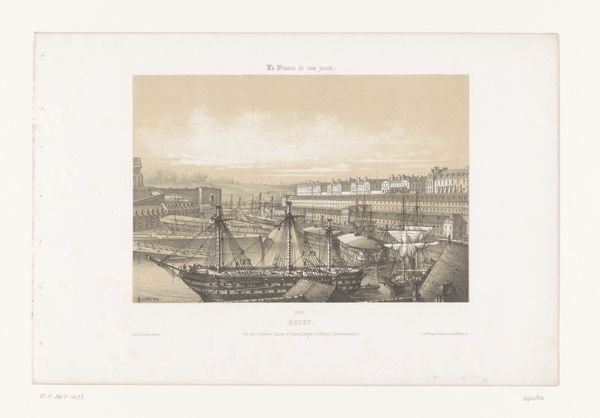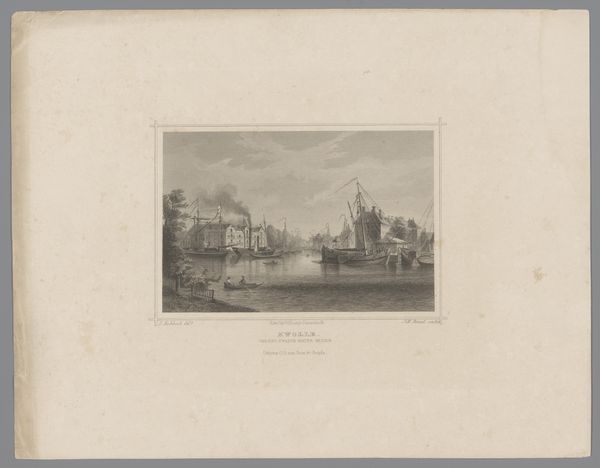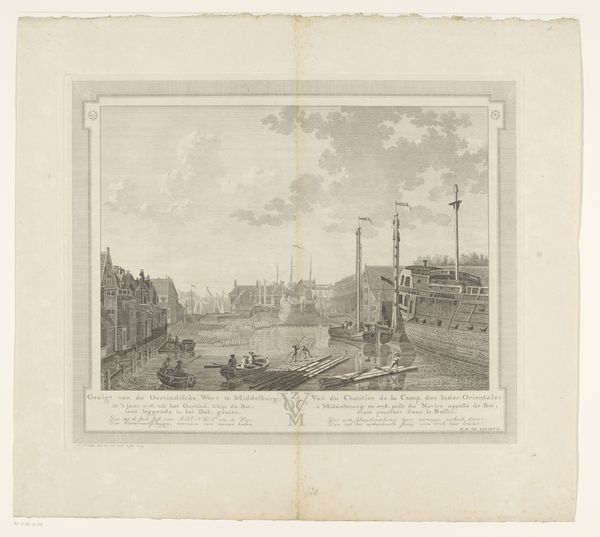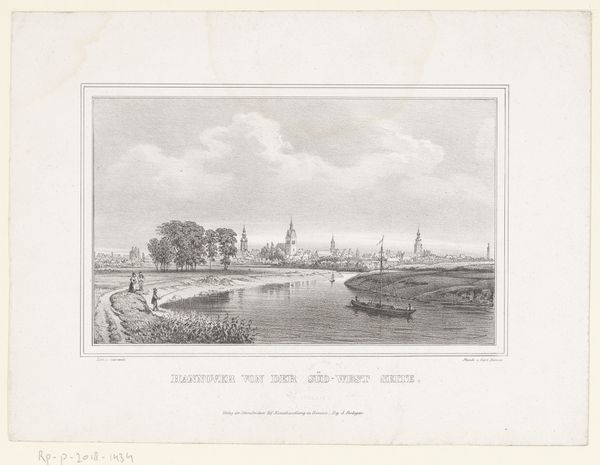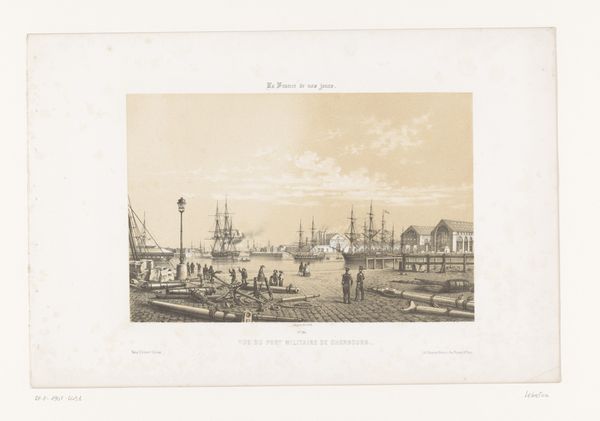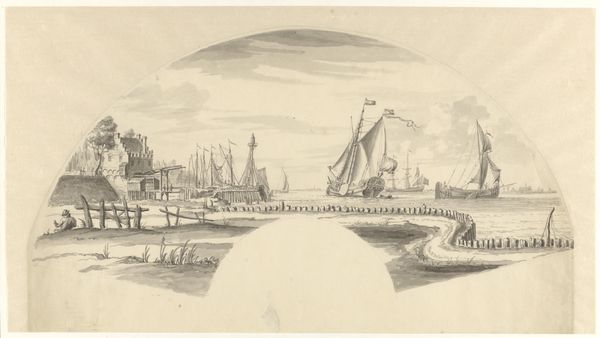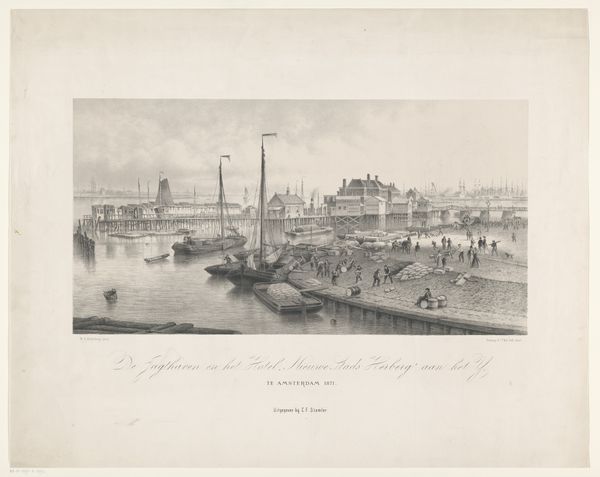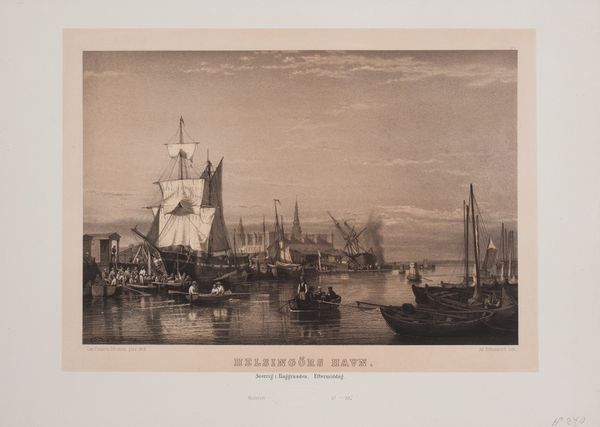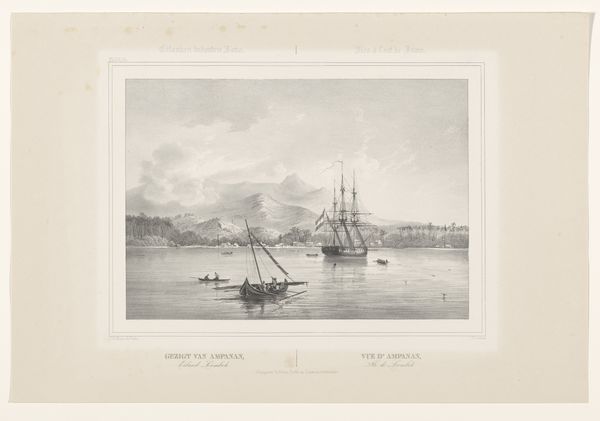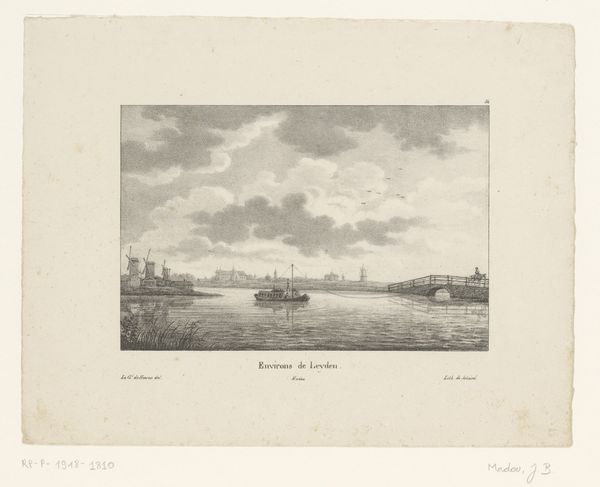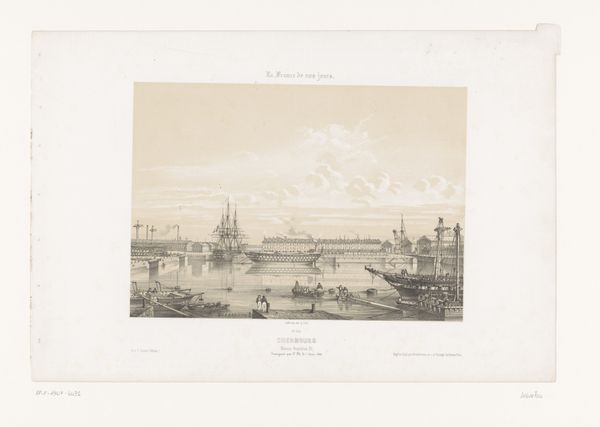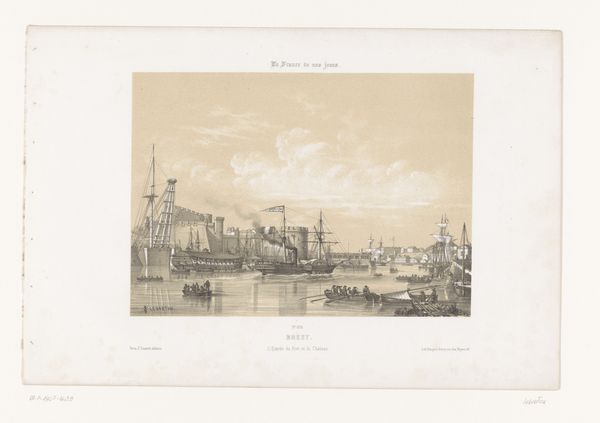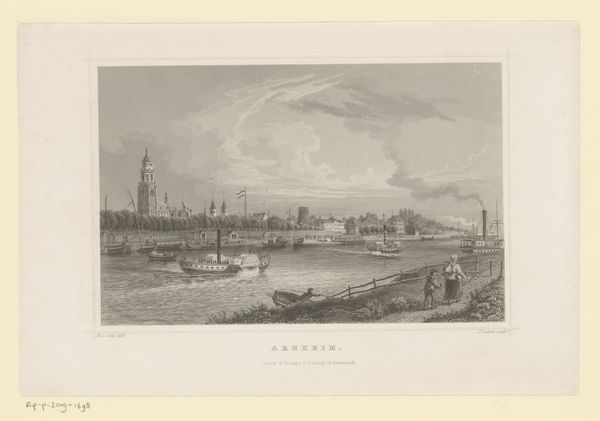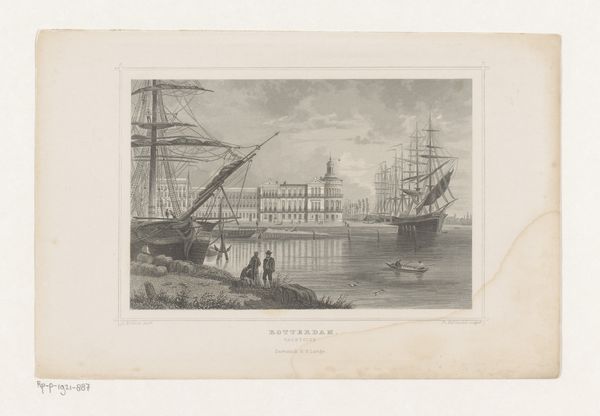
lithograph, print, engraving
#
lithograph
# print
#
landscape
#
cityscape
#
engraving
#
realism
Dimensions: height 415 mm, width 510 mm
Copyright: Rijks Museum: Open Domain
Matthijs Willem Gerardus Michielsen made this print of the Koningsbrug in Rotterdam using lithography, a process that democratized image-making in the 19th century. Unlike traditional engraving, which demands laborious carving into metal, lithography relies on the chemical repulsion between grease and water on a flat stone surface. An image is drawn with a greasy crayon, then treated with acid to fix it. When the stone is inked, the ink adheres only to the drawn image, which can then be printed. Consider how this process affects the image before you. The subtle gradations of tone, achieved by varying the pressure of the crayon, give the scene depth and atmosphere. Lithography allowed for relatively quick reproduction, making images like this accessible to a wider audience, fueling the growth of popular culture and documenting the rapidly changing urban landscape during the Industrial Revolution. This print demonstrates the power of accessible techniques in capturing and disseminating views of the world around us. By understanding the process, we gain insight into the social and cultural context of the artwork itself.
Comments
No comments
Be the first to comment and join the conversation on the ultimate creative platform.
